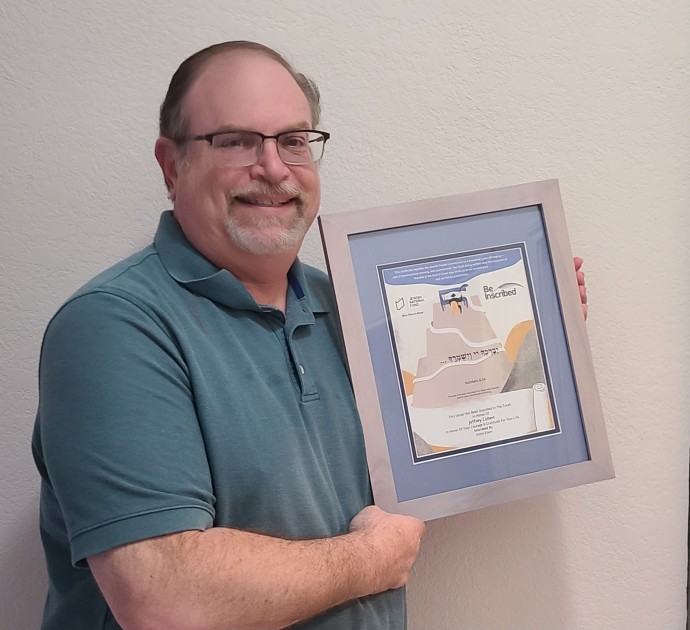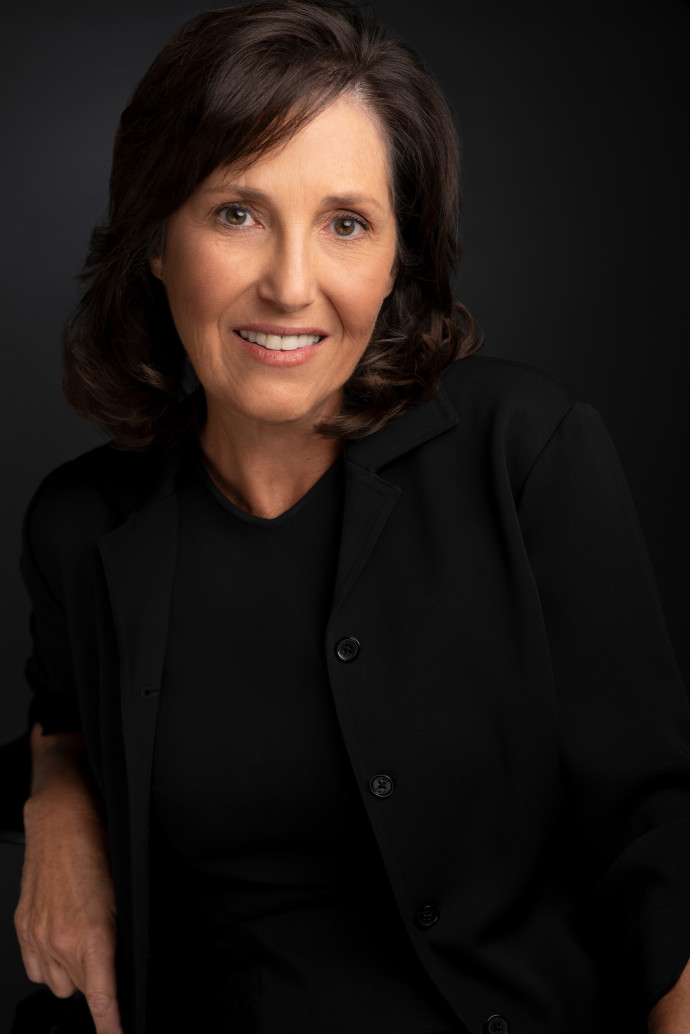As a therapist and an author, Anna Salton Eisen knows firsthand that words have the power to heal. Yet, on January 15, 2022, when she watched i she didn’t know what to say. “My mother, who was 99 and a Holocaust survivor had come to live with me, it was horrible to have to tell her that this was happening in our town. That this kind of antisemitism was still happening.”
As a founder of the synagogue, Eisen was devastated by the destruction she witnessed when she finally was able to return to the building the weekend after the attack. Windows had shattered, the flooring was full of bullet holes, but most disturbing was the pain and trauma she saw in her dear friend Jeff Cohen’s eyes, one of the hostages who had experienced the ordeal firsthand and who had faced down the barrel of the gunman, saved only by the miraculous fact that the trigger jammed.
“I didn’t know if I could go back,” said Cohen, but it was the surprise gift that Eisen presented him with the following week that gave him the strength to return as a leader and an outspoken advocate against antisemitism.

“May God bless you and keep you” gave Cohen the push he needed to find purpose in his experience. Just three words in Hebrew, it is a simple and pure prayer that Eisen had dedicated to Cohen in honor of his “courage and gratitude for [your] life.” Donated through the Be Inscribed program, an initiative of Jewish National Fund-USA, these three words will be written into a new Torah scroll by an expert scribe atop the ancient Jewish fortress of Masada in Israel, the place where another Jewish community faced destruction long ago. “When she gave it to me, I couldn’t speak,” recalled Cohen, “I was crying and shaking, it was so meaningful.” The words now hang in his bedroom where he sees them before he goes to sleep and upon waking in the morning. Each day the words remind him of what he has survived, but more than that, the tie to Masada reminds him of what the Jewish people have survived, and they motivate him to fight back.
Life has never been the same for the people of Congregation Beth Israel. They regularly receive threats of violence and “revenge” and have had to adjust to a constant security presence. More than that, they have had to contend with the knowledge that a man boarded a plane and flew thousands of miles to harm them just for being Jews, driven by hatred and conspiracy theories that are rapidly taking further root before their eyes. Eisen described the ongoing experience for her community as only a therapist can, “To be the target of hatred… it has changed things for us. We can’t fully recover because trauma recovery requires safety, processing, and autonomy, and we do not have safety.” Though they still face dangers externally, she explained, “I wanted Jeff to be reminded that he was not forsaken, that he should feel safe and protected.” That theme of searching for safety drives her work, telling her parents’ story of Holocaust survival, and drives her community to continue to do outreach and share their story for the good and safety of Jews everywhere.

For Cohen, bringing more people and communities into the fold of recognizing and fighting antisemitism wherever it appears motivates his daily work. One year on from that horrific day, he now regularly speaks with various faith communities and other audiences, believing deeply that, “There is one very effective way to fight hate and that is through exposure. Ignorance is not a sin, we have to let people ask questions and establish relationships.” Yet, his advice for other Jewish communities remains pragmatic; looking back to the Jews who were ultimately lost on Masada to the Roman horde, he advised, “A little bit of training can make a big difference. Knowing where the exits are, keeping calm. We’ve got to get out there and explain and emphasize that what the Jewish community is facing is different.”
